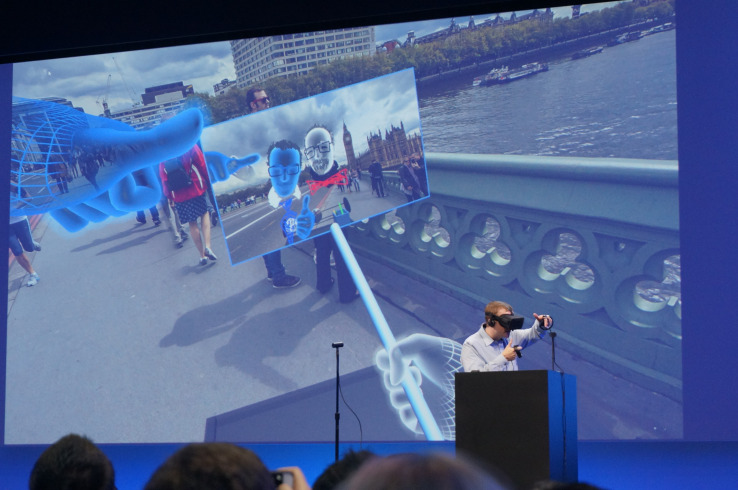
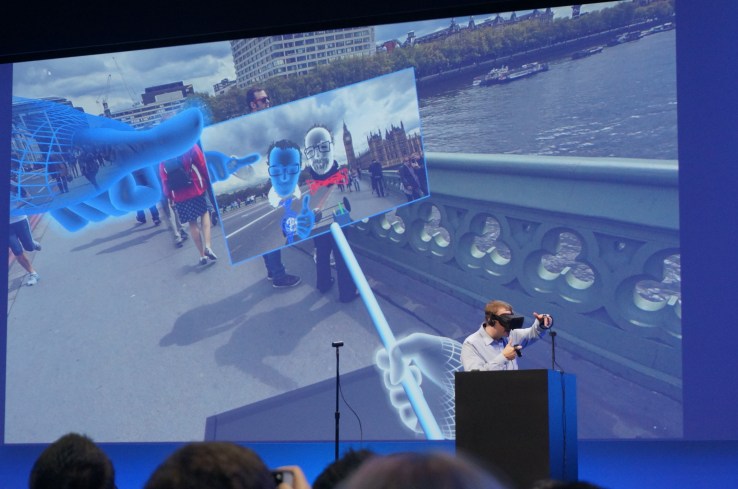
Oculus wants to let you go anywhere in the world instantly, look like yourself, and even take a photo while you’re there, and today it demoed how at F8.
Watch the demo of Facebook and Oculus’ 360 photo spheres, virtual reality selfie stick, and personalized avatars below:
To show how social VR could work, Facebook’s CTO Mike Schroepfer strapped into Oculus in San Francisco, joining an engineer named Michael Booth back at Facebook’s headquarters. They entered Facebook’s new social test bed built with Unity. It’s an alternative to the old Toy Box social space built on Unreal.
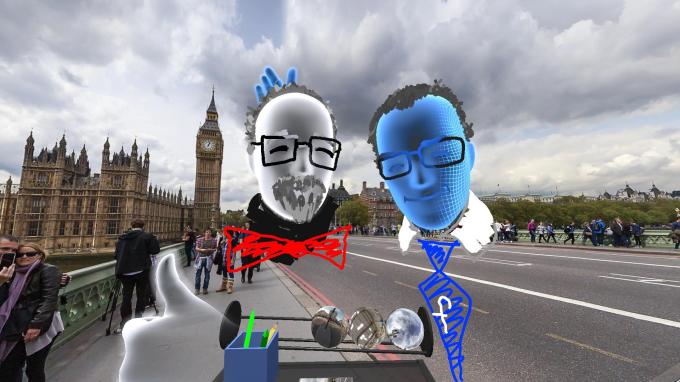
Rather than use generic robot heads or playful cartoon characters to represent them, each man had a customized avatar that actually looks like their real-life selves. After the keynote, Facebook told me these were made with an Occipital Structure sensor that can detect both depth and texture.
But for now, Oculus won’t be releasing this face-capture technology yet. The problem is if you get a bad scan, the grotesque result is far worse than some standardized avatar. Eventually, though, the company hopes you’ll be able to just wave your phone in front of your face to capture your look, or use a headset that does it automatically.
Another possibility is for Facebook to be able to recreate your face in VR based on the photos you’ve posted on the social network, though this is still in very early testing.
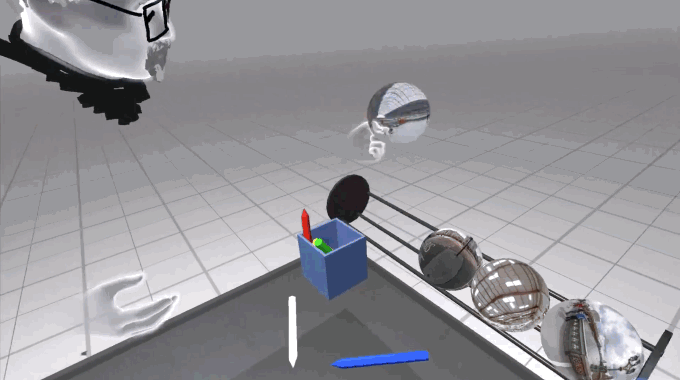
In the new social VR test bed, 360 photos appear as handheld spheres you can rotate to look at. But when smashed against your face, you’ll instantly be teleported to where the photo was taken so you can look around however you want. You can see a rack of photo spheres in the GIF above.
With a VR selfie stick, you’ll be able to take a photo of your avatar and a friend’s in front of Big Ben or other world landmarks. Oculus says it’s been able to get up to five people in this VR environment at once.
You can even draw on your avatar to add sunglasses or a bow tie. And once you have a photo you like, you can push it into a virtual Facebook mailbox to post it to the social network.
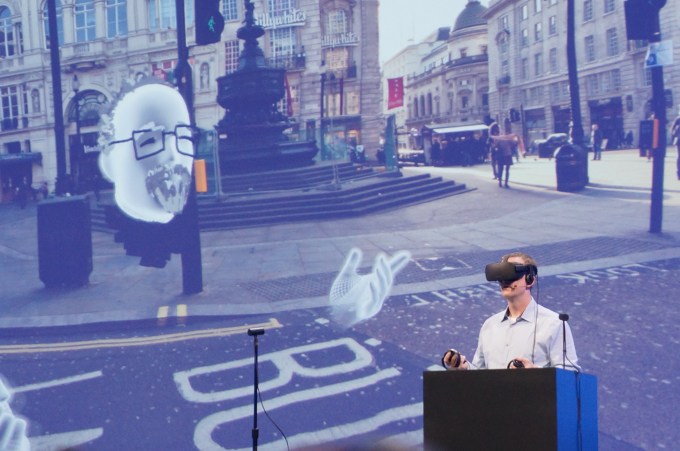
Dive into 360 photo spheres and hang out around the world with a friend
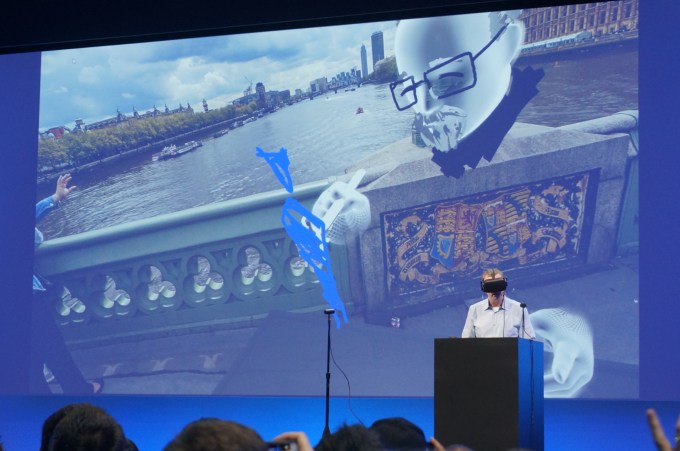
Doodle in VR to enhance your avatar
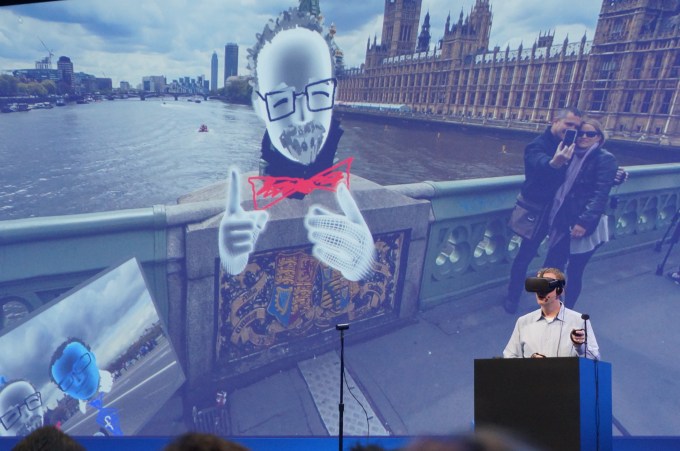
You could draw a bow tie and attach it to your avatar.
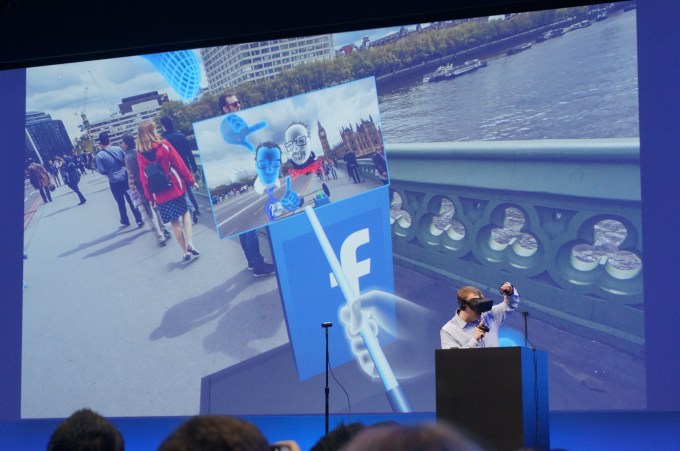
Take a photo with a VR selfie stick
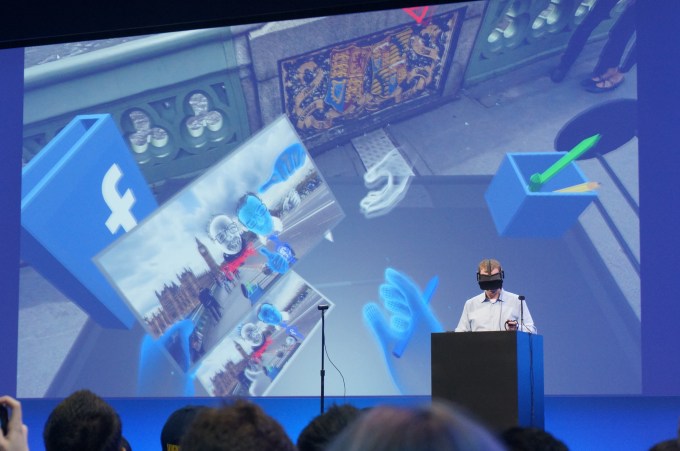
Slide your photo into the Facebook mailbox to share it
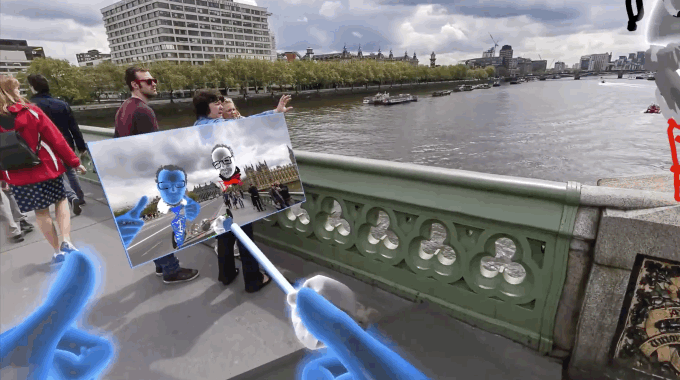
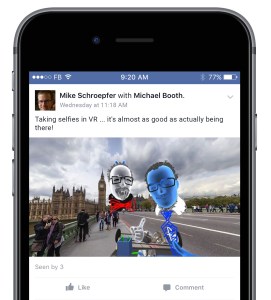 Mark Zuckerberg said that Facebook sees virtual reality as not only the future of gaming and cinema, but also socializing. But that doesn’t mean just looking at a News Feed in VR. Facebook and Oculus are trying to build native social experiences on the virtual plane.
Mark Zuckerberg said that Facebook sees virtual reality as not only the future of gaming and cinema, but also socializing. But that doesn’t mean just looking at a News Feed in VR. Facebook and Oculus are trying to build native social experiences on the virtual plane.
VR will cause transformative shifts much the way mobile did. What if you could interview for jobs around the country without leaving home, and even obscure age, gender, and race so you could be hired because of your merits, not how you look.
Not everyone can afford to travel to see family or visit the wonders of the world. But as the price of truly immersive and interactive virtual reality like the Oculus Rift comes down, you’ll be able to feel like you’re in the same room as your loved ones, and then go anywhere together.

